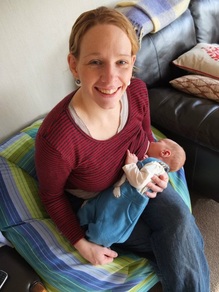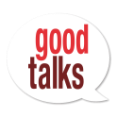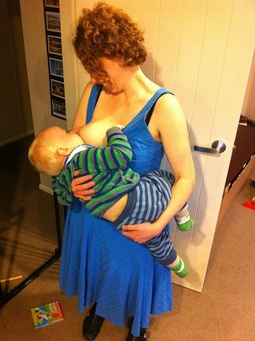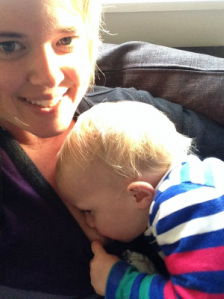 This is a guest post written by my dear friend Jules Hyde. I am posting it now in honour of World Milksharing Week. Growing up as the daughter of farming parents on a sheep and beef farm, the idea of milk sharing and donor milk was nothing new. I learnt from a young age that lambs and calves who never received that all important first feed of colostrum had very poor outcomes. As I trained to become a midwife, the benefits of species- specific milk were cemented in my mind and I took very seriously my role of protecting, promoting and supporting breastfeeding. When I had my own child, I had already stock piled colostrum in the freezer prior to labour by expressing it antenatally as an “insurance policy” in case baby and I were separated in those early days. I had also approached a friend who was still breastfeeding her child and asked how she felt about being able to provide donor milk in the event of requiring larger volumes of milk for my baby if required. My own breastfeeding was fraught with ups and downs as we battled for nearly six months with the consequences of an undiagnosed tongue and lip tie. I remained resolute in my determination to breastfeed despite issues with supply, weight gain, fussing at the breast, nipple damage, spending three days in hospital with raging mastitis, a spilly baby who slept very little and fed ALL.THE.TIME. By four months, I was walking on the edge of postnatal depression, exacerbated by sheer exhaustion and sleep deprivation. At my absolute lowest, a caring family member suggested that “just one bottle of formula” was perhaps a good idea. The pervasive comments offering the perceived benefits of powdered cows milk designed for infants had been floated at me more times than I could count, and despite the effort and struggles I had until this point found the idea of formula for my baby laughable. But at my most vulnerable and tired and desperate hour, I agreed to trying “just one bottle', and I sobbed as a fed it to my own baby. Looking back, I realise that despite being educated, aware and passionate about “human milk for human babies”, I too was just as suggestible and vulnerable to the undermining that chips away at a woman's confidence to exclusively breastfeed her baby for the first six months or so. (That is, by definition, that the baby receives only breastmilk and has no additional food, water or other fluids, with the exception of medicine where needed.) This was the one and only time my son had formula, but I am still sad that I found myself allowing it to happen. Of course formula has its place, and we are lucky to have access to such alternatives and safe drinking water to enable it to be an option, BUT too often it is reached for in moments of desperation while often the issues to support breastfeeding are brushed to the side. I found out through trial and error that even with perfectly adequate supply, and despite all the tricks of heat, massage, and thinking loving thoughts as I gazed at my infant I simply do not “let down” efficiently to a pump or to hand expressing techniques. I felt very sad at this, as I had hoped that I would be able to a) stockpile a decent stash of frozen breastmilk for my own infant's needs, and b) to be able to donate milk to babies and mums who were for whatever reason requiring supplementary feeds. I persevered with as much expressing as I could, and the only way it really ever happened was if my son was drinking at one breast, with a letdown happening, and I could hand express off the other side simultaneously. Needless to say it was a delicate balancing act, very fiddly and for the 30-40mL yield, often far more trouble than it was worth. Once my son started solids, and eventually got closer to a year of age, I decided that the couple of hundred mLs in the freezer were of better use to someone else who genuinely “needed” breastmilk. This is where my first experience as a Wet Nurse came in. Through Piripoho Aotearoa and my friend Rachel Hansen (who had set up a local milk sharing group), I was aware of a mum who needed donor milk. I offered to drive the last of my frozen expressed offerings over to her as she lived out of town. While I was there, I commented that expressing was not a viable way of me continuing to provide volumes of milk for others, but (knowing other mums had wet nursed for her) that I was happy to feed her baby for her while I was there, if she wanted. She gladly accepted this offer, and in a very surreal moment, I took a stranger's baby and put him to my own breast. The mum and I both welled up a little as I asked her how it felt for her to have others feed her baby, and we talked about the feelings evoked by the situation. I still recall the emotion at the time of feeling like I was so privileged to be able and allowed to help in such a special and intimate way. My own son was very puzzled and slightly upset at this new arrangement, but consoled with a feed himself after the donor baby had had his fill. After this point, I put my contact details down on the milk sharing group as someone who was unable to express but happy to wet nurse, and through this I became involved with another mum and baby. This time the mum had driven in to me from her rural locale, and despite having never previously met, I fed her child. Again I asked her how it felt for her relying on other mum's for milk, and she confessed that it was “weird, but also not weird” and accredited this to the ease at which she felt in my straightforwardness in approaching the situation, and then proceeded to tell me that this was actually the first time someone had been a wet nurse for her baby. This piece of information really threw me for a second, and again I was filled with a sense of awe and privilege at the trust and honour that went into a milk sharing relationship. I continued to wet nurse for this family over the course of a few days as their regular donor was out of town, and it enabled the mum to eke out her supply of frozen donor milk by me doing the odd feed here and there during the day. While I remain more than willing to help any other families in such a way, I feel my inability to express limits my usefulness somewhat. I am still breastfeeding my son who is two, and feel pleased I have been able to help two families, in a small but meaningful way. I hope that milk sharing becomes de-stigmatised and a normal and first-line alternative to a mother-baby dyad when they may previously have seen their only other option as formula.
2 Comments
I was recently in a discussion where some women who had not breastfed their first child said they wanted to try to breastfeed their second child. This is a topic close to my heart as I didn't succeed in breastfeeding my eldest child, but am enjoying a great breastfeeding relationship with my second child who turned two last week. I want to pass on some of the things I learned in my journey).
Here is my TOP TEN to-do list for parents who want to succeed in breastfeeding their next baby:
Anyone else got any tips / ideas / anecdotes to pass on? I would love to hear them! (As you may have guessed, I am passionate about helping women breastfeed. I completely understand that some women can't breastfeed exclusively: but for the small minority of women who don't produce enough/any milk, I want them to know that a breastfeeding relationship is still possible - breasts are way more than just milk! And I want for EVERY woman to have the option of choosing donor milk should they wish. I have written in more detail about my breastfeeding experience here.) |
AuthorRachel is a writer and educator whose fields of interest include sexuality education, gender, feminism and youth development. Archives
November 2023
Categories
All
|



 RSS Feed
RSS Feed




